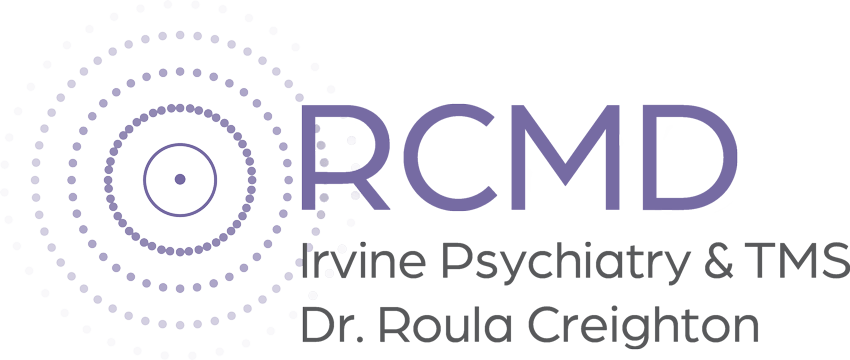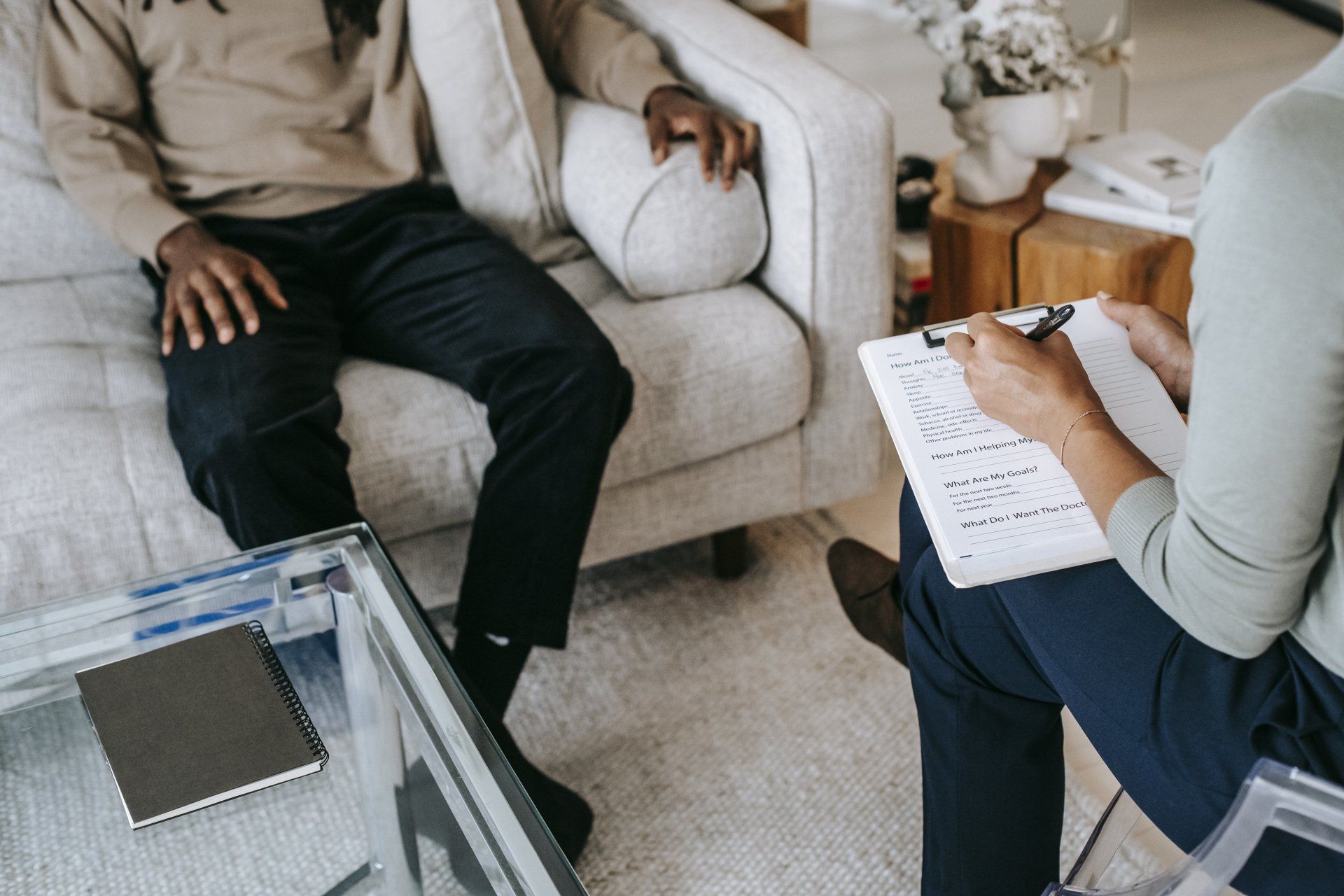• In Business Since 2008
4199 Campus Drive,
Suite #550 Irvine CA, 92612
Phobias
IRVINE PSYCHIATRY AND TMS - DR. ROULA CREIGHTON
What Causes Phobias?
Phobias are irrational fears of specific objects or situations that are out of proportion to the actual danger posed by the object or situation. The exact cause of phobias is not fully understood, but it is thought to be the result of a combination of genetic, environmental, and psychological factors. Here are four possible causes of phobias:
- Genetics: Phobias tend to run in families, suggesting that there may be a genetic component to the disorder.
- Environmental factors: A person's experiences and environment can play a role in the development of phobias. For example, a person who has had a traumatic experience with a particular object or situation may develop a phobia of that object or situation.
- Conditioning: Conditioning is the process by which an individual learns to associate a particular stimulus with a particular response. If a person has had a negative experience with a particular object or situation, they may develop a phobia of that object or situation through conditioning.
- Neurotransmitter imbalances: Abnormalities in the levels of certain neurotransmitters, such as serotonin and norepinephrine, have been linked to anxiety disorders, including phobias.
How You Can Help Treat Phobias
If you or someone you know is struggling with a phobia, it can be a deeply distressing and disruptive condition. Phobias are irrational fears of specific objects or situations that are out of proportion to the actual danger posed by the object or situation. There are several effective ways to treat phobias, including psychotherapy, exposure therapy, medication, and self-help strategies. With the right treatment plan, it is possible to overcome a phobia and live a happier, more fulfilling life. Here are four ways to treat phobias:
- Psychotherapy: Cognitive-behavioral therapy (CBT) is the most widely used and effective form of therapy for phobias. It helps a person identify and change negative thought patterns and behaviors that are related to their phobia.
- Exposure therapy: This type of therapy involves gradually exposing the person to their phobia in a controlled and safe environment, with the goal of helping them overcome their fear.
- Medication: Antidepressant medications, such as selective serotonin reuptake inhibitors (SSRIs), can be effective in reducing anxiety and phobia-related symptoms.
- Self-help strategies: There are several self-help strategies that can be helpful for managing phobias, such as relaxation techniques (e.g., deep breathing, progressive muscle relaxation), exercise, and getting enough sleep. It can also be helpful to talk to a trusted friend or family member, or to join a support group for people with phobias.
What Are The Most Common Phobias
Phobias are irrational fears of specific objects or situations that are out of proportion to the actual danger posed by the object or situation. There are many different types of phobias, but the most common ones include:
Social phobia: A fear of social situations, such as public speaking or being around others
Agoraphobia: A fear of being in public places, especially when alone or in unfamiliar surroundings.
Specific phobias: A fear of specific objects or situations, such as heights, flying, or animals.
Claustrophobia: A fear of being in small, enclosed spaces.
Overcoming Your Phobia
If you or someone you know is struggling with a phobia, it is important to seek help from a mental health professional. With the right treatment plan, it is possible to overcome a phobia and live a happier, more fulfilling life. At Irvine Psychiatry and TMS, we specialize in helping individuals with phobias and are dedicated to providing a safe and supportive environment where our clients can feel comfortable and confident in their journey towards recovery. Contact us today to learn more about how we can help.
Explore Services
Send us a Message
Website Form
We will get back to you as soon as possible.
Please try again later.
Need help?
Contact Us Today
We’d love to hear from you. Choose the most convenient method and we’ll get back to you as soon as we can within 24 hours.
CALL US TODAY:
Contact Information
PATIENT TESTIMONIALS
Read What Our Patients Are Saying About Us
At vero eos et accusamus et iusto odio dignissimos ducimus qui blanditiis praesentium voluptatum.
William
RCMD Patient
'Anyone dealing with, or suffering from, Panic disorder will find psychological and medical expertise specific to this disorder, and would ultimately achieve improved quality of life under the care and supervision of Dr. Roula Creighton.'

Lisa
RCMD Patient
'Someone in need of psychiatric care will be very well taken care of pharmaceutically and therapy-wise with Dr. Roula Creighton. Excellent physician. She listens carefully, is involved in caring for her patients, and very professional.'

Maria
RCMD Patient
'Telehealth was extremely seamless and more comfortable than I anticipated; this platform is just fine given the situation with this pandemic and Dr. Creighton was just as caring as usual...I have no issues with the manner by which the care is delivered.'

Patient Focused Care
Please Call or email to schedule your appointment.
CALL US TODAY:
Get latest updates Subscribe to Our Newsletter
Newsletter Subscription
We will get back to you as soon as possible.
Please try again later.
About Us
Irvine Psychiatry and TMS is Orange County's leading provider of cutting-edge & expert psychiatric care. We offer a variety of treatment options to meet each individual's needs.
Useful Links
Services
Irvine Psychiatry and TMS Dr. Roula Creighton
Phone: (949) 202-7566
Fax: (949) 437-3428
Email: admin@irvinepsychiatry.com
Location: 4199 Campus Drive, Suite #550 Irvine, California 92612
Irvine Psychiatry and TMS | Powered by Vulcan


